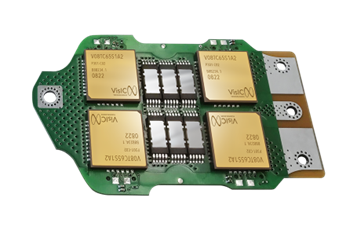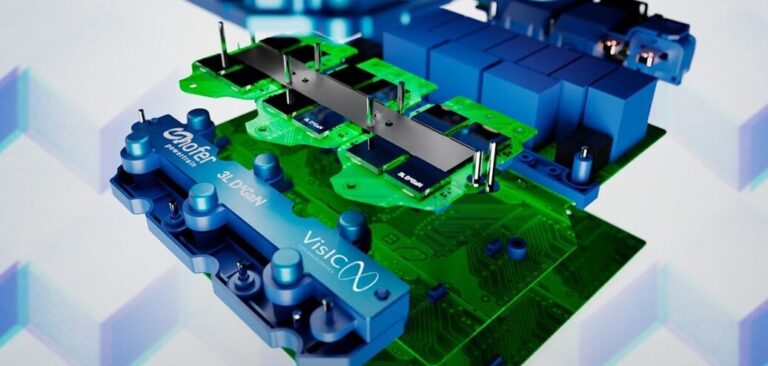Electric drive multinational Hofer Powertrain has been working on the development of multilevel power electronics with VisIC Technologies’ gallium nitride chip technology, D3GaN (Direct Drive D-Mode), which it hopes will further advance efficiency in electric drives.
According to the companies, the new solution’s efficiency and power density exceed silicon-based technology’s capabilities and bench tests have proven successful. The three level (3L) GaN (Gallium Nitrite) inverter currently under development is said to be capable of significantly higher switching speed, in a smaller and lighter package than comparable SiC units.
To date, high-voltage use of GaN semiconductors has proved problematic, however Hofer Powertrain and VisIC Technologies aim to develop gallium nitride-based power inverters for electric vehicles, suitable for use with 800V battery systems in the automotive industry. “We are proud to achieve the next step in developing efficient GaN-based, high-frequency inverters for 800V automotive applications”, said Lukasz Roslaniec, an electronics expert at Hofer Powertrain.
The team at Hofer developed a Minimal Viable Product (MVP) to investigate and prove the capability of using 650V gallium nitride semiconductors in an 800V 3L NPC inverter application, specifically, their behavior in terms of switching speed and EMC. The main goal was to prove their ability to feed a sinusoidal current of 100 Arms through an inductive load and to perform a double pulse test. According to the company the results showed the possibilities for impressive performance increases.
“Hofer Powertrain’s development paves the way for a breakthrough in GaN inverter performance, which is superior to silicon and silicon-carbide-based designs for high efficiency,” added Ilia Bunin, senior product manager and technical expert at VisIC Technologies.
 The system provided valuable insights and in-depth understanding of the short circuit protection, switching properties of the implemented GaN transistors, the impact on dv/dt, oscillations during switching, voltage overshoots, and much more. Furthermore, the company identified the most important electrical and thermal properties to be address during rapid further development.
The system provided valuable insights and in-depth understanding of the short circuit protection, switching properties of the implemented GaN transistors, the impact on dv/dt, oscillations during switching, voltage overshoots, and much more. Furthermore, the company identified the most important electrical and thermal properties to be address during rapid further development.
Hofer states that sample stage (A1) production has already started, and the units are expected to perform well in real test conditions with a permanent magnet synchronous motor. The team aims to validate and benchmark existing systems using the Worldwide Harmonized Light Vehicles Test Procedure (WLTP).


